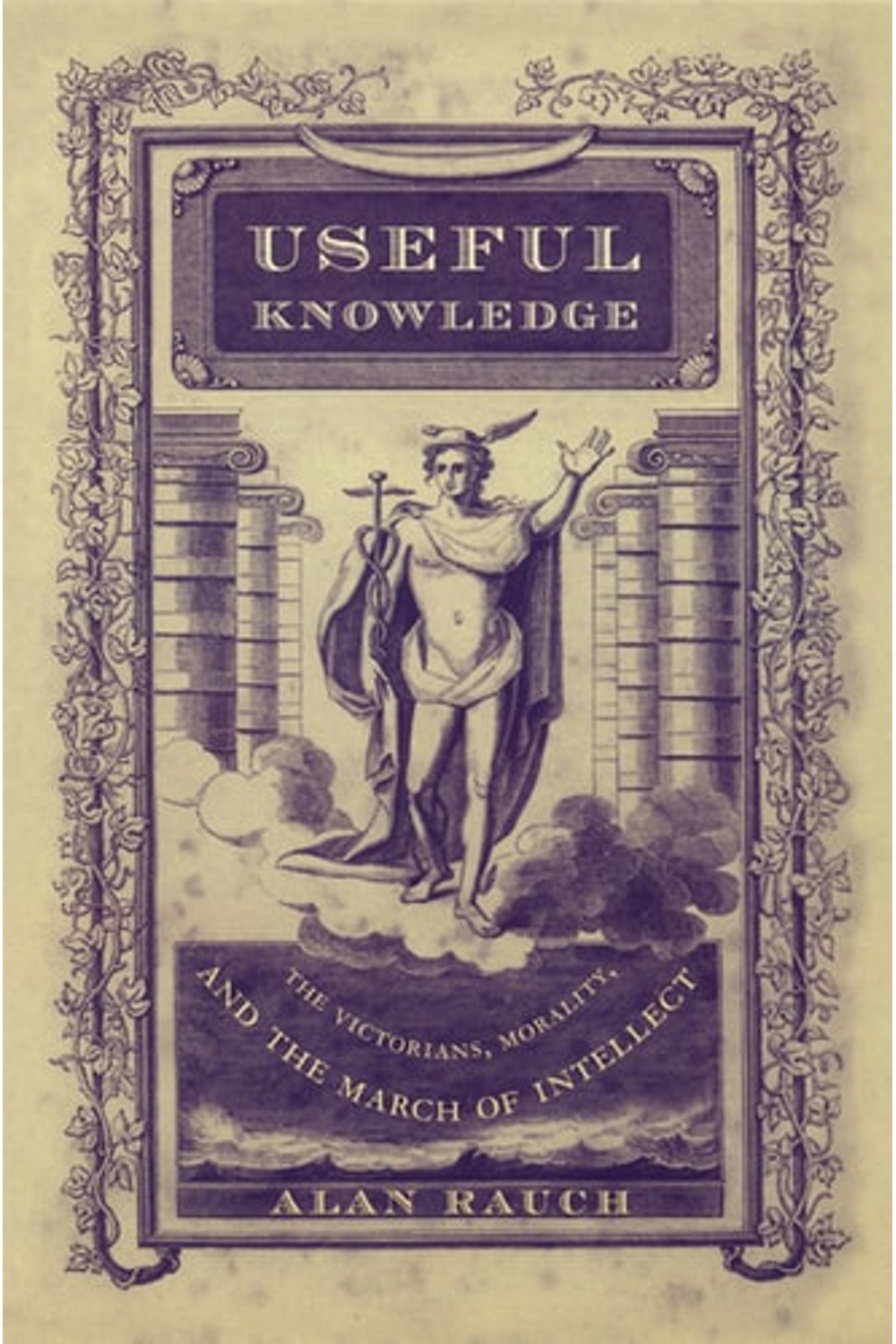Dive into Victorian England’s knowledge explosion with Alan Rauch’s *Useful Knowledge: The Victorians, Morality, and the March of Intellect*. This book isn’t just a history lesson; it’s a deep dive into how the 19th century’s obsession with acquiring and spreading “useful knowledge” shaped morality, religion, and even the very fabric of society. Rauch meticulously charts the rise of scientific societies, encyclopedias, and other institutions that fueled this era of intellectual fervor. But he doesn’t stop there. He expertly weaves together social, cultural, and literary threads, showing how the pursuit of knowledge both empowered and unnerved the Victorians. Explore familiar literary ground anew as Rauch examines works by Mary Shelley, the Bronts, George Eliot, and others, revealing how these authors grappled with the ethical and societal dilemmas posed by burgeoning scientific advancements. The book builds towards the seismic impact of Darwin’s *Origin of Species* on this carefully constructed world of Victorian intellect. More than just a historical account, *Useful Knowledge* offers a relevant commentary on our own information age. It prompts us to consider the responsibility that comes with knowledge and the enduring tension between progress and morality. Ideal for those interested in Victorian studies, history of science, or the evolution of intellectual thought. A must-read for understanding the roots of our modern relationship with knowledge.
Useful Knowledge: The Victorians, Morality, and the March of Intellect
26,66 $
In stock
Nineteenth-century England witnessed an unprecedented increase in the number of publications and institutions devoted to the creation and the dissemination of knowledge: encyclopedias, scientific periodicals, instruction manuals, scientific societies, childrens literature, mechanics institutes, museums of natural history, and lending libraries. In Useful Knowledge Alan Rauch presents a social, cultural, and literary history of this new knowledge industry and traces its relationships within nineteenth-century literature, ending with its eventual confrontation with Charles Darwins Origin of Species.
Rauch discusses both the influence and the ideology of knowledge in terms of how it affected nineteenth-century anxieties about moral responsibility and religious beliefs. Drawing on a wide array of literary, scientific, and popular works of the period, the book focusses on the growing importance of scientific knowledge and its impact on Victorian culture. From discussions of Jane Webb Loudons The Mummy! and Mary Shelleys Frankenstein, to Charlotte Bronts The Professor, Charles Kingsleys Alton Locke, and George Eliots Mill on the Floss, Rauch paints a fascinating picture of nineteenth-century culture and addresses issues related to the proliferation of knowledge and the moral issues of this time period. Useful Knowledge touches on social and cultural anxieties that offer both historical and contemporary insights on our ongoing preoccupation with knowledge.
Useful Knowledge will appeal to readers interested in nineteenth century history, literature, culture, the mediation of knowledge, and the history of science.
| Authors | |
|---|---|
| Binding | |
| Condition | |
| ISBN-10 | 082232668X |
| ISBN-13 | 9780822326687 |
| Language | |
| Pages | 304 |
| Publisher | |
| Year published | |
| Weight | 726 |
| Edition | Text is Free of Markings |
| Dewey decimal | 823/.809 |
Related products
- Additional information
- Currencies
- USD – United States dollar
- EUR – Euro
- GBP – Pound sterling
- CNY – Chinese yuan
- BRL – Brazilian real
- MXN – Mexican peso
- JPY – Japanese yen
- PHP – Philippine peso
- THB – Thai baht
- PLN – Polish złoty
- CAD – Canadian dollar
- MYR – Malaysian ringgit
- AUD – Australian dollar
- TWD – New Taiwan dollar
- CZK – Czech koruna
- SEK – Swedish krona
- HUF – Hungarian forint
- ILS – Israeli new shekel
- CHF – Swiss franc
- HKD – Hong Kong dollar
- DKK – Danish krone
- SGD – Singapore dollar
- NOK – Norwegian krone
- NZD – New Zealand dollar



